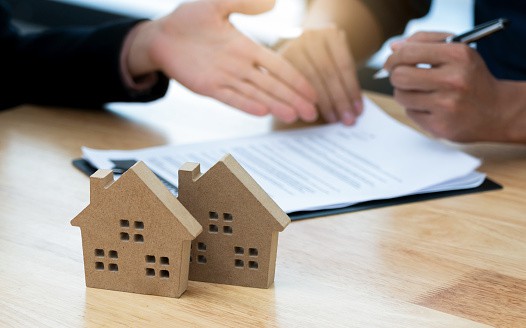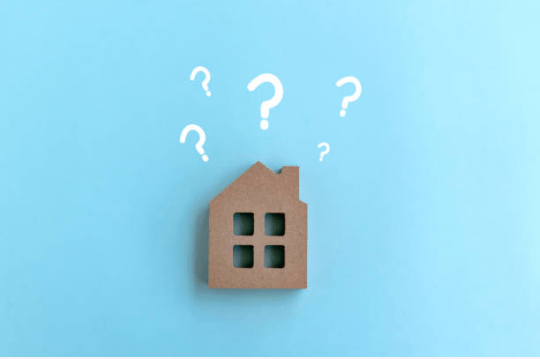Got debt? If you have some equity in your home, a cash-out refinance could be the answer to paying off high-interest debt.
To be clear, cash-out refinancing isn’t for everyone. However, it can help some homeowners deal with mounting debts, such as credit card debt or medical bills.
The cash-out refinance, a type of home equity loan is actually a new mortgage. It tends to carry lower interest rates than home equity loans or a home equity line of credit.
All three loan types, however, use the home as collateral. Therein lies the biggest risk: If you fail to make the payments, you’ll probably lose your house.
Cash-out refinancing adds many more years to the loan.
“You might be three years into a 30-year mortgage, but a cash-out refi changes it to zero years into a 30-year mortgage,” says Sean Murphy, assistant vice president of equity lending at Navy Federal Credit Union.
Unless you’ve got a plan for early repayment, you’ll be paying for your home a lot longer than you’d planned.
Additionally, taking out equity means owning less of your home. If you decide to sell later, you’ll come away with less money unless you’ve built the equity back up.
How Cash-Out Refinancing Works
As mentioned before, a cash-out refinance is a new mortgage. Some of that new loan pays off the original mortgage, plus closing costs and prepaid items such as homeowner’s insurance or property taxes. The remainder comes to you in cash.
You can be approved for 80% to 90% of the home’s value, minus the amount left on the current mortgage loan. Here’s what that looks like for someone who owes $100,000 on a home worth $250,000:
- 80% of $250,000 = $200,000
- $200,000 minus the $100,000 current loan balance = $100,000
- Result: Up to $100,000 for a cash-out refinance
Because this is a new mortgage, you must re-qualify. To do this, you’ll need a debt-to-income ratio that the lender feels comfortable with, as well as a good to excellent credit score.
As with any new mortgage, you’ll pay some upfront expenses, such as:
Closing costs: These typically run from 3% to 6% of the loan amount, which can add thousands to the total.
Private mortgage insurance: You’ll need to pay this if you borrow more than 80% of the property’s value. Private mortgage insurance (PMI) can cost up to 1% of the loan amount each year until you’ve rebuilt the equity.
Keep in mind that a new mortgage means new loan terms. Therefore, read the cash-out refinance agreement carefully.
The Least Expensive Debt
In some cases, a home equity loan might make more sense than a cash-out refinance. Terms for these loans typically run from five to 15 years. But if you need a large amount of cash and aren’t sure you can repay it within that period, a lump sum cash-out refinance could be the way to go.
A longer-term means lower monthly payments, but more interest paid over the life of the loan. That’s money that can’t be used for other things, such as your retirement or your child’s college education.
Delia Fernandez, a certified financial planner in Los Alamitos, California, knows of “serial refi-ers” who cashed in their equity more than once to live the high life.
But she’s also worked with regular folks who did cash-out refinancing without weighing how it might affect them as they grew older. Some wanted to retire but couldn’t afford it because they had so many years left on their mortgage payments.
“I’ve seen people divorce over it,” Fernandez says of cash-out refinancing.
However, some debt happens under extraordinary circumstances. High medical costs or an expensive lawsuit must be dealt with somehow. Suppose that the minimum payments on those debts equals $800 a month, and you just can’t swing that on top of all your other expenses.
A cash-out refinance might add an extra $400 to your monthly mortgage payment, but it clears the debt and gives you some breathing room. And it does so at a much lower rate than the double-digit interest of a typical credit card. Some people take advantage of the low rates for debt consolidation purposes, to make home improvements, or for a down payment on other real estates.
“A cash-out refi is going to be the least expensive debt in your life,” Fernandez says.
Obviously, not all debtors are blameless. Consumers need to address any behaviors that triggered their financial problems, such as gambling, compulsive shopping, or substance abuse. A cash-out refinance can address the effects, but not the root cause.
“Using that tool effectively and intentionally is really, really important,” Murphy says. “In the end, if they solve their short-term problem of outstanding, high-interest debt and then go right back to it, that’s a larger issue.”
Always review your options. A cash-out refinance requires similar research to taking out a new home loan or perhaps a second mortgage. As you hopefully did with your first mortgage, investigate the current mortgage rates, look at other mortgage refinance options, and compare mortgage lenders.



